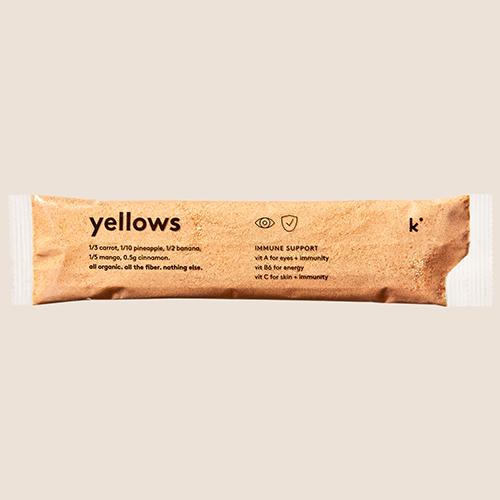Why you’ll never see us promoting a diet
We can have a greater impact by focusing on the benefits of more, rather than less when it comes to nutrition. Here’s what that means.
We can have a greater impact by focusing on the benefits of more, rather than less when it comes to nutrition. Here’s what that means.
Our goal as a company has always been to make it easier for more people to eat more fruits and vegetables. And there are two big reasons why this objective guides everything we do:
At the individual level, we know that folks who eat five or more servings of produce per day have a lower risk of contracting many chronic diseases, and they tend to live longer.
But we also know that eating habits rooted more in plants and less in animal products are better for the environment, too.
So while the magnitude of our mission is major, the solution is (seemingly!) simple. If a product or service can help people eat more plants, we want to pursue it, because we’re all about supporting you as you make healthier choices — for yourself, and for the planet.
At this point in the blog, we’d like to direct your attention to the fact that we’ve already used the word “more” five — scratch that, now six times. And there’s a reason for that. We aren’t too fond of diets, diet culture, or the diet industrial complex. Why?, you ask? Let us count the reasons!
1. Diets don’t work
They just don’t! How’s that for starters?!
For centuries now, snake oil salesmen have peddled lose weight fast “solutions.” And they’ve built up an extremely profitable industry around this reliable business model: prey on people’s desire to be thin and a longstanding cultural bias against fatness. Reduce your caloric intake and the miraculous results will follow.
But there’s just no evidence that cutting out whole food groups or restricting calories leads to long-term weight loss. The science is consistent on this. Crash dieters might lose some weight initially, but almost always regain it, and then some. And there’s evidence that regular, extreme weight fluctuation caused by yo-yo dieting is actually more harmful than maintaining a higher, but consistent weight.
There are dozens of factors that go into a person’s weight — caloric intake is just one of them.
2. Weight isn’t synonymous with health
Here’s the section where we debunk the Body Mass Index, or BMI. It’s widely used as a proxy metric for overall individual health, but it’s also inherently flawed.
It was created to measure average body weight across an entire population, namely, a sample group of mostly European men, back in the first half of the nineteenth century. That means BMI doesn’t account for variations in body composition among ethnic groups, or genders. And it also was never intended to serve as a stand-in for overall individual health.
For what it’s worth, a study conducted on 3.6 million UK adults, found that having an underweight BMI takes more years off your life expectancy than having one that categorizes you as overweight or obese, except at the highest end of that scale. These findings have been replicated, and others have even indicated that for older folks, an overweight BMI correlates with a longer life more than a “normal” BMI.
3. And you have better things to do than spend all day thinking about calories
Per one study, a third of Americans say they’ve followed a restrictive diet in order to lose weight or get healthier. 80% feel they receive conflicting nutrition advice that can cast doubt on their food choices. And if we extrapolate these findings onto the entire American population, that’s over 100 million people on diets that probably won’t help, and 263 million people confused about what good nutrition looks like.
We won’t even attempt the math on how many days of people’s lives have been spent shouldering the burden of a scarred relationship with food on a yearly basis. But just think of all the better uses for that time and emotional energy!
What we’re doing instead
And that’s why we’re channeling our efforts toward a positive, nourishment-based approach. If one of the best things you can do for your overall health is to add more plant-based foods to your diet, then we are firmly in the camp of more is better, not less is more.
But we know that eating more plants can be easier said than done, for a wide range of reasons: time, access, and everything in between. What we can do — and what we aim to do at kencko — is provide our members with nutrient-dense, hassle-free foods that fit into their already busy daily routines.
Basically, we want to help make the fastest choice, also the healthiest one. That doesn’t mean the lowest calorie option, it just means one that’s chock full of plant-based goodness.
One thing that’s truly unique to kencko is our Nutrition Team: an amazing group of Registered Dietitians who advise on product development and give free, one-to-one nutrition coaching to our members. Our gentle, effective approach is based around encouraging health-promoting behaviors that are sustainable in the long term, and providing simple nutrition principles to empower people to make their own choices.
there's more good content where that came from
